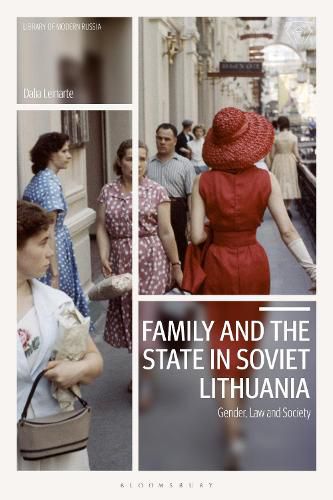Readings Newsletter
Become a Readings Member to make your shopping experience even easier.
Sign in or sign up for free!
You’re not far away from qualifying for FREE standard shipping within Australia
You’ve qualified for FREE standard shipping within Australia
The cart is loading…






If the home remained a safe space for families during the Soviet occupation of Lithuania, why is it that the memories of women’s domestic lives in Soviet Lithuania are so fragmented? In Family and the State in Soviet Lithuania, Dalia Leinarte deftly challenges the commonplace ‘kitchen culture’ idea that the home was a site of silent resistance where traditional Lithuanian values continued to be nurtured. Instead, this fascinating book reveals how the totalitarian state gradually abolished the private lives of Lithuanian families altogether.
Based on over 100 interviews and an array of archival sources, this book analyses how family policy formed the everyday life of men and women and considers how the internalisation of Soviet ideology took place in the private sphere. From a well-developed after-school activity program for children to strict rules regarding the working hours of men and women, ultimately the family could not remain isolated from the regime.
Family and the State in Soviet Lithuania is the first book to explore family policy in the Soviet Baltic states and is therefore a vital resource for scholars of Soviet and gender history.
$9.00 standard shipping within Australia
FREE standard shipping within Australia for orders over $100.00
Express & International shipping calculated at checkout
If the home remained a safe space for families during the Soviet occupation of Lithuania, why is it that the memories of women’s domestic lives in Soviet Lithuania are so fragmented? In Family and the State in Soviet Lithuania, Dalia Leinarte deftly challenges the commonplace ‘kitchen culture’ idea that the home was a site of silent resistance where traditional Lithuanian values continued to be nurtured. Instead, this fascinating book reveals how the totalitarian state gradually abolished the private lives of Lithuanian families altogether.
Based on over 100 interviews and an array of archival sources, this book analyses how family policy formed the everyday life of men and women and considers how the internalisation of Soviet ideology took place in the private sphere. From a well-developed after-school activity program for children to strict rules regarding the working hours of men and women, ultimately the family could not remain isolated from the regime.
Family and the State in Soviet Lithuania is the first book to explore family policy in the Soviet Baltic states and is therefore a vital resource for scholars of Soviet and gender history.